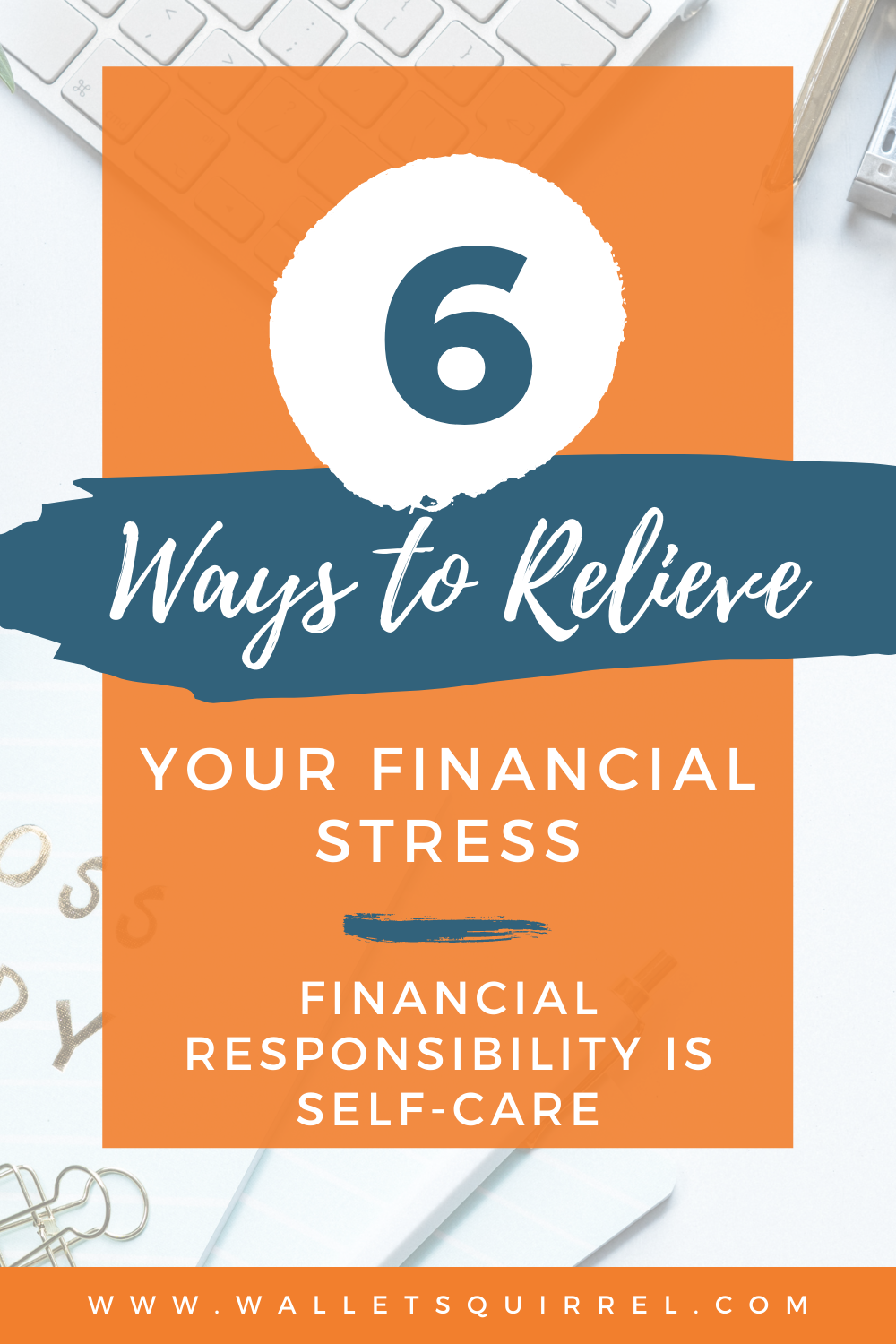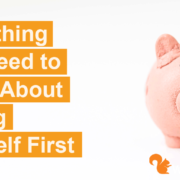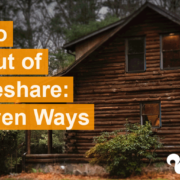Financial Responsibility Is Self-Care. 6 Ways to Relieve Your Financial Stress.

Anyways, my lack of financial responsibility and knowledge was not a good situation to be in. We were burning through our savings and slowly amassed some credit card debt.
At this moment, I was stressed. I was nervous. I was anxious. These emotions didn’t allow me to be a good husband or friend. I didn’t know what to do from here.
Enter Wallet Squirrel and the financial freedom community.
Over the last six to seven years, I have learned that actually being disciplined with money is very freeing. I no longer have any of those negative emotions revolving around money. Though we are not where I want us to be yet, I am actually very happy where we are financially. We are heading in the right direction. It is a long game.
If you are feeling the same negative emotions I did, it is your turn to take on financial responsibility for self-care. While it is challenging, it is worth every penny!
1. Set Up Goals by Budgeting
The biggest self-care item to help your wallet is to set up a budget. Some people think budgets are constraining but I think they are a tool for freedom. They tell me exactly how much I can spend and this is a relief. As long as I know I spend within the budget amounts I have set for myself, I know I am spending within my means.
Since I am tracking my spending to be within a goal, I do not have to worry about my spending. This is very freeing.
There are many tools to help track your spending. I used to use a simple spreadsheet but that takes a lot of time to upkeep. Now I prefer to use the Mint App from Intuit which helps me track my spending automatically. There is still some manual work but it is so much easier now.
2. Treat Yourself While Earning Money Back
There are too many apps that help you earn rewards back to go into today. The idea here is we need to enjoy life so you need to make sure you are earning money back for things you love.
Some ideas on how to earn money back.
- Credit Cards – My wife and I live in Colorado. We love the outdoors. Good outdoor gear is expensive! Because of this, we use the REI credit card for our everyday purchases. Every year we typically get a $400 gift card to REI which helps us purchase our gear for the upcoming year. We do plan on switching over to a travel card though.
Let me know down in the comments section if you have a favorite travel credit card.
- Rewards Programs – Join a rewards program to earn a free coffee or sandwich. While not that sexy, we enjoy the rewards program through Kroger for our groceries. It helps a lot with our gas bill.
- Subscriptions – There are some household items we purchase on a monthly basis so we have subscribed to those through Amazon. Amazon rewards you with a slightly cheaper price.
- Annual Sales – Wait to purchase until an annual sale happens. A lot of companies have them. We take advantage of REI’s every year with our rewards. Planning to travel? Make sure you plan ahead to purchase so you can wait until an airline is having a major sale.
How do you earn money back for things you love?
3. Find Items in Your Budget You Can Cut Back On
Over the past year, my wife and I have found about ten areas on our budget where we could save money on a monthly basis.
Some of those items included:
- Refinancing – We refinanced in the middle of 2021. Our house had increased in value by over $100k so we decided to take advantage of this unique time. By refinancing, we were able to drop the private mortgage insurance and pay off my student loans. Here are some more details about the refinance process.
- Internet Modem – Silly me, but I did not realize you had to pay the cable company $15 a month just to use their cable modem so you can access the product you are paying them to use. What a rip-off! I learned you can use your cable modem and return the cable company’s to drop that $15 a month charge. Good cable modems are cheap and easy to set up. Here is the one I bought.
- Cutting Subscriptions – My wife and I talked about subscriptions we were not using very much. While they were nice to have, they were not worth it as we did not use them very often. The costs of subscriptions add up very quickly. Ask yourself, do I really use this subscription?
- Phone Bill – We decided to move over to Google Fi from the very expensive Verizon. There are many cheap options for cell service now such as Google Fi or Ryan Reynold’s Mint Mobile. So far the move has been worth it, dropping our bill by almost $70 a month.
Overall, we are saving just under $700 a month with all of the cutbacks we made. This totals up to over $8,000 a year! That is enough to take our kids to Disney World next year! Who am I kidding, that trip is for my wife and me.
4. Save Up An Emergency Fund
Emergency funds are such an amazing thing! I did not know about them until Andrew wrote about them in his My Emergency Fund article.
My wife and I do own a house that comes with a lot of items that could break. Because of this, we keep a fund the size of our largest item. What is that item? There are too many of them but we currently focus on our heater and AC units. Both are about 20 years old so if one goes, the other will need to be replaced to be most efficient. I have gotten estimates that say this replacement would be $10k to $13k so we keep $15k in our emergency fund to give some more wiggle room.
Having this money stored away removes a weight off my chest. I know this expense is coming at some point in the near future. Instead of having to worry about how we will pay for it, we already know-how.
In the meantime, we are saving up for replacing the units on our own schedule without dipping into our emergency fund.
Emergency funds are so important for financial security just in case you are laid off. The $15k we have saved up will get us through six months, with some budgeting adjustments, if my wife or I were laid off from our job.
5. Invest in Your Future
The stock market can make a lot of people nervous. That is very understandable, especially with how volatile it has been over the last two years. Buying long-term investments are not for yourself today but rather your future self. If you invest wisely, your future self will thank you greatly!
There are many ways that you can reduce this risk.
- ETF’s – These tend to perform the way the market does. I really enjoy any ETF provided by VanGuard.
- Large Caps with Dividends – Andrew loves to buy large-cap stocks that provide dividends. Owning a diverse group of large caps tends to be a very conservative approach. Plus they pay out dividends that can be reinvested. Once you purchase enough, the snowball effect really starts to speed up.
- Betterment – Betterment is kind of like a digital broker. You set up an account with them, tell them how aggressive/conservative you want to be, then invest some money with them. From there they take care of everything for you. I really enjoy their process.
6. Set Up Term Life Insurance for Your Family
This financial self-care item did not click until recently. In the last few years, I have had two kids so my financial responsibility increased dramatically. Sadly, I have also had too many people close to my heart pass away. Those that left us included two cousins that were younger than me as well as my mother and best friend’s father who were both under 60. Three out of the four of these deaths were very much unexpected. The other was from a very aggressive cancer that she was diagnosed with just twelve months prior.
The moral of that sad story is we never know when we might pass on. We have plans to be here until we are 100 but those plans are very fragile.
I did not want to leave my wife without a financial security blanket. With all of the extra financial responsibility that my wife and I choose to take on I needed to leave her with something. Because of this, I decided to buy extra life insurance on top of what my work provides.
There are many philosophies as to how much life insurance you should get. My wife and I have decided to provide the other with enough life insurance to get us through three years worth of expenses (use your budget from above to figure this amount out).
Only you know your situation so I cannot recommend how much life insurance you should buy. Using the tools above, you will need to find the amount that you think is best for you and your family.
Financial Responsibility is Self-Care
Let us be honest, financial responsibility is not the most fun and glamorous thing in the world. The fact is, unless we have millions of dollars in the bank, we need to take care of our finances. If we do not, the stresses of having poor financial health will take a toll on our actual health. I can tell you from personal experience, it is 100% worth it.
What financial responsibility have you taken on as self-care?
Not happy with your current income and looking to earn some extra money? Over the years, Andrew and I have put together a massive list of ways to make money. I highly recommend you check out this list to see if anything catches your eye!

Wallet Squirrel is a personal finance blog by best friends Andrew & Adam on how money works, building side-hustles, and the benefits of cleverly investing the profits. Featured on MSN Money, AOL Finance, and more!










The most effective ways to reduce financial stress is to make a plan, communicate very often, expect the unexpected, tackle debt, automate payments and savings and much more. You can also consult with any financial advisor about the same.